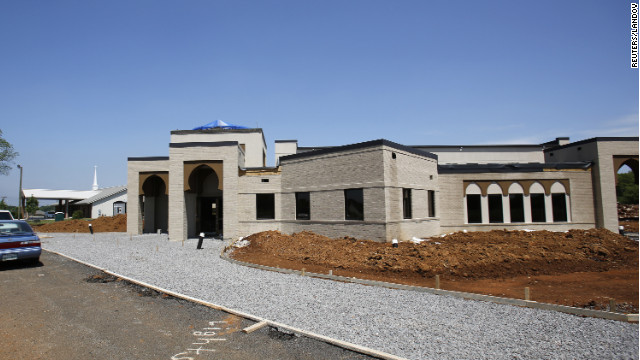Mankind faces misery and suffering through natural disasters such as earthquakes, hurricanes, tornadoes, volcanic eruptions, avalanches, floods, etc. People of faith believe that these are a consequence of God's wrath or anger at humans who committed sins. Sometimes this type of reasoning is not valid because many times innocent and pious people also get killed or suffer. Only God (Allah) knows the true reason.
HURRICANES IN THE QURAN
In Surah 77 (Mursalat) of the Qur'an we read:
1. By the (Winds) Sent Forth (5863) one after another (to man's profit); (5864)
2. Which then blow violently in tempestuous Gusts (5865)
3. And scatter (things) far and wide;
4. Then separate them one from another
5. Then spread abroad a Message (5866)
Abdullah Yusuf Ali believes this is a' highly mystical Surah. In note 5864 he writes, "Understanding the reference to Winds, we can see that they are powerful factors in the government of the physical world.
(1) They come gently as harbingers of the blessings of rain and fertility; but
(2) they can come as violent tornadoes, uprooting and destroying;
(3) they can scatter seeds far and wide, and
(4) they can separate chaff from grain, or clear the air from epidemics; and
(5) They literally carry sound, and therefore Messages, and metaphorically they are instrumental in making God's Revelation accessible to hearers, whether by way of justification or repentance for the Penitent, or warning for unrepentant Sinners. All these things point to the power and goodness of God, and we are asked to believe that His promise of Mercy and Justice in the Hereafter is indeed true."
In another verse Surah Ar-Rum:46, the Qur'an says:
And among His Signs is this, that He sends the winds as glad tidings, giving you a taste of His Mercy (i.e. rain), and that the ships may sail at His Command, and that you may seek of His Bounty, in order that you may be thankful.
Yusuf Ali explains, "In the physical world, the winds 'not only cool and purify the air, and bring the blessings of rain, which fertilize the soil, but they help international commerce and intercourse among men through seaways and now by air-ways. Those who know how to take advantage of these blessings of God prosper and rejoice, while those who ignore or fail to understand these Signs perish in storms. So in spiritual world: heralds of glad tidings were sent by God in the shape of apostles: those who profited by their Message prospered in spiritual gain and those who ignored or opposed the clear Signs perished spiritually."
SCIENTIFIC INFORMATION
A hurricane is an area of low pressure that forms over oceans in tropical regions in either the North Atlantic Ocean or eastern North Pacific Ocean. When such a storm is developed in the western Pacific Ocean, then it is called a typhoon. The Indian subcontinent is devastated by storms developed in the Indian Ocean, which are known as cyclones.
North Americans are familiar with hurricanes. Hurricane is a powerful, whirling storm that measures 320 to 480 kilometers (km) or 200 to 300 miles in diameter. The winds near the center of a hurricane blow at speeds of 119-km or 74 miles per hour or more. North Americans have witnessed widespread death and destruction caused by many hurricanes
.
Hurricanes develop from easterly waves. These long, narrow regions of low pressure occur in ocean winds called trade winds. Easterly waves wilt be converted into a tropical depression, with winds up to 50 km per hour or 31 miles per hour: then into a tropical storm, with winds of up to 119 km per hour or 74 miles per hour; and finally, into a hurricane. The center of the hurricane is called an eve which is a calm area. Hurricane winds swirl around the eve. The eye of a hurricane measures about 32 km or 20 miles in diameter and has few winds or clouds. Storm clouds called wall clouds surround the eye. The strongest winds and heaviest rain of a hurricane occur within its wall clouds.
HURRICANE SANDY 2012
We now face another hurricane, "Hurricane Sandy" which is just hours away...
In New York City, thousands of people have been ordered to leave their homes and evacuation shelters have been set up in 76 schools.
Public transport has been halted and the New York Stock Exchange closed.
Forecasters fear Sandy will become a super-storm when it collides with cold weather fronts from the west and north.
Sandy has already killed 60 people after sweeping through the Caribbean in the past week.
Source: BBC
Dua / Invocations when experiencing strong winds...
Allaahumma 'innee 'as'aluka khayrahaa, wa 'a'oothu bika min sharrihaa.
O Allah , I ask You for the good of it and seek refuge in You against its evil.
Reference: Abu Dawud 4/326, Ibn Majah 2/1228. See also Al-Albani, Sahih Ibn Mjjah2/305
Allaahumma 'innee 'as'aluka kthayrahaa, wa khayra maa feehaa, wa khayra maa 'ursilat bihi wa a'oothu bika min sharrihaa, wa sharri maa feehaa, wa sharri maa 'ursilat bihi.
O Allah, I ask You for the good of it, for the good of what it contains , and for the good of what is sent with it . I seek refuge in You from the evil of it , from the evil of what it contains, and from the evil that is sent with it.
Reference: Muslim 2/616, Al-Bukhari 4/76.
Dua / Invocation for when it thunders
Subhaanal-lathee yusabbihur-ra'du bihamdihi walmalaa'ikatu min kheefatihi.
Glory is to Him Whom thunder and angels glorify due to fear of Him.
Reference: Whenever Abdullah bin Zubair (RA) would hear thunder, he would abandon all conversation and say this supplication. See Al-Muwatta' 2/992. It was graded authentic by Al-Albani as a statement of Abdullah bin Zubayr only.
Source(s):
http://www.islamawareness.net/Dua/Fortress/
May Allah (God Almighty) protect all people there from Hurricane Sandy.... Please share your experiences here...



